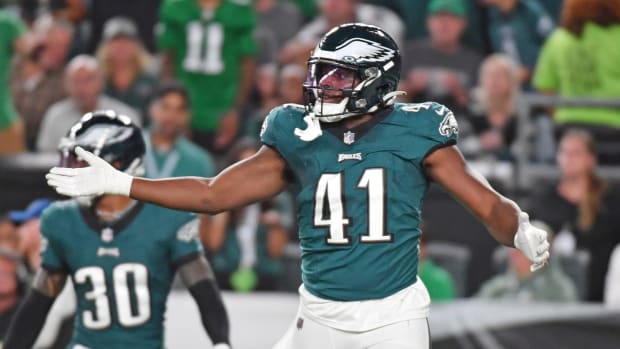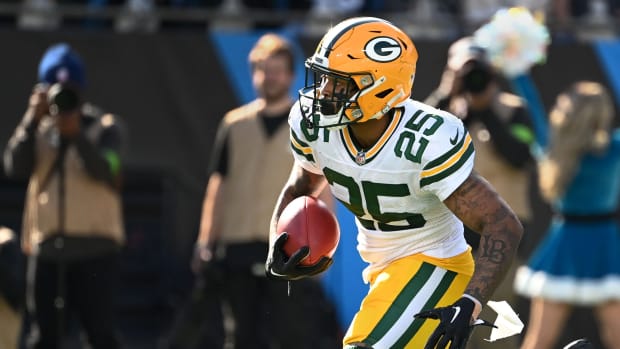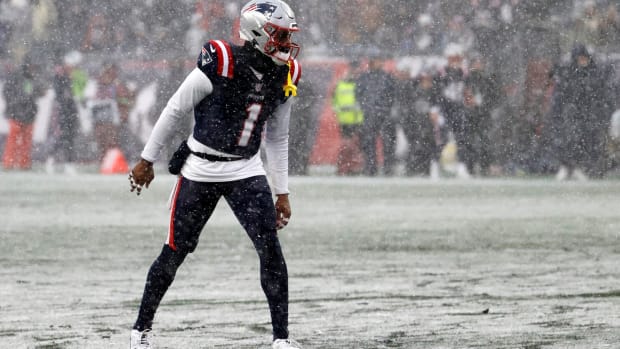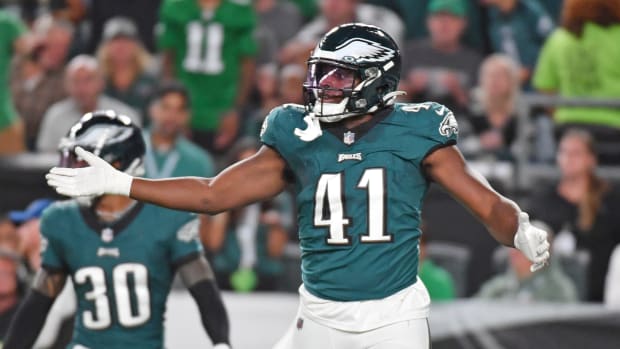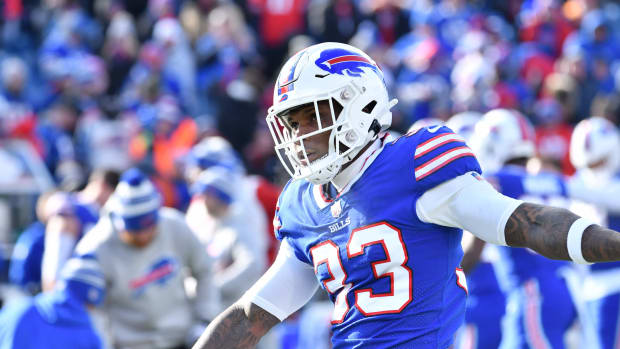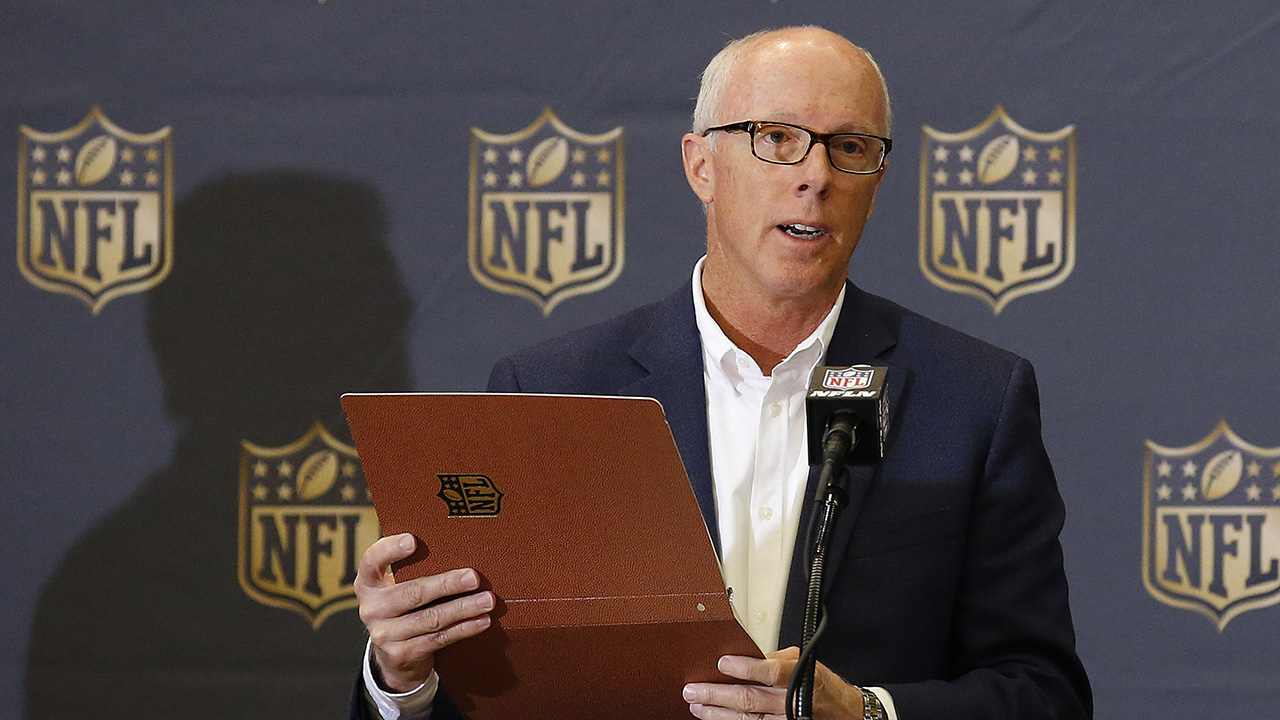
On Punishment, Real-Talk Translations and Why the NFL Needs To Lighten Up
Though I was away on a family trip last week, I still took note of some important items from the league meetings, which I’ll get to after addressing the “punishments” handed down by the NFL to the Falcons and Browns.
Timing is everything
Though the league deserves some credit for following through on these matters, the punishments given to the Falcons and Browns—for playing artificial crowd noise during a game and for impermissible texting from the owner’s box to the sideline—are clearly timed to the teams’ benefit, beginning with the announcements. Revealing the penalties during last week’s owners meetings would have caused some degree of embarrassment to the club executives in front of their peers; the league spared them by waiting until this week.
How The PAT Could Change By This Fall
The 32 teams are near unanimous in believing the point after touchdown needs to change. Precisely how is another story. Peter King has the details of a compromise that goes to vote in May. FULL STORY
Regarding the Falcons’ discipline, the NFL took the rare step of calling out the club employee directly responsible for the piped-in noise, the now-fired marketing director Roddy White (I know, what are the chances?), who faces suspension should he return to the league. Team president Rich McKay, who is ultimately responsible for the team’s adherence to league rules, was also found culpable even though he was unaware of White’s actions. However, the politically connected McKay is able to operate without interruption for the Falcons, facing only a suspension from the league’s competition committee. And that suspension commences now, after the committee’s busiest month and McKay’s presentation at the meetings. The committee’s only key date during McKay’s suspension, which lasts through June, is the owners’ meeting in May. Thus, in practical terms, McKay has a one-day suspension.
Similarly, the four-game suspension given to Browns GM Ray Farmer commences at the start of the season—right after the team roster is set—and not when he is in the most pivotal part of his calendar. Further, the NFL imposed no penalties on those above Farmer in the Browns organization who are ultimately responsible for adherence to league rules. Farmer, of course, was improperly texting from the owners’ suite.
The timing of these suspensions should warrant the attention of the NFL players’ association. While player suspensions affect the labor force during the most crucial time of year, these management suspensions appear calculated to mitigate disruption and appease team owners. If this logic were to hold up, shouldn’t players serve suspensions during the offseason?
Finally, as to the monetary penalties—a $350,000 fine for the Falcons, who also lose a 2016 fifth-round pick, and $250,000 for the Browns—well, that is money found in the couch cushions for those owners, hardly a deterrent.
Time out for being knocked out
The most important development at the 2015 meetings was the approval of medical timeouts. The independent trainer/spotter watching from the press box—someone unaffiliated with either team, not even a former intern—can now communicate with the referee to stop the game upon observing a potentially concussed and compromised player. In recent years, the spotter could only radio down to trainers’ on the sideline to check out a player who might still be on the field in an ongoing series. I can’t help but wonder, why didn’t spotters always have this power?
Players have a default instinct of wanting to play through injuries, even concussions, and their nonguaranteed contracts and lack of job security contributes to this mindset. This new measure takes an important step toward protecting players from themselves. Some are quick to point out the potential abuse of medical stoppages, such as a player feigning disorientation to stop play during a fast-paced drive. While this could be a rare unintended consequence, if we are talking about it, so are the officials, spotters and trainers.
• SWEETNESS AND THE SCOUT: How a chance meeting with Walter Payton became a lasting bond
Cost and humility
The Prospects
Jean Sifrin: A high school dropout's long, winding journey to the NFL draft.Leonard Williams: Our Andy Benoit sat down for a film session with the draft's best defensive player.Brandon Scherff: The draft's best—and nastiest—blocker is a modern-day Paul Bunyan.T.J. Clemmings: A switch from defense to offensive tackle awakened a monster.Shaq Thompson: Before he was an NFL prospect, he was baseball's worst player.
While the Patriots’ proposal for additional cameras in replay review was tabled, Giants owner John Mara probably regrets using the phrase “cost issue” as a concern. With NFL revenues north of $10 billion and most team valuations at more than $1 billion, dismissing a measure to “get it right” as a cost issue does not play well to the audience (to say nothing of Bill Belichick).
On the subject of playing well with others, I thought it interesting that David Brooks of the New York Times was the speaker during the annual Sunday night session (an optional session I always learned from). Brooks, I am told by sources, lectured owners that despite their wealth and power of influence, they were failing due to arrogance. Brooks’ message was for these titans of the football industry to be more contrite, more respectful and to stay humble. That may be their most difficult—and most important—task ahead.
The NFL can be an intoxicating workplace. Just as constant praising can affect players’ egos and attitudes, it does the same with owners and executives. I have seen it firsthand, with some NFL owners and executives needing to get over themselves. I was, at times, one of them: I had to check myself a few times with the Packers and wondered about the type of person I was becoming. I know I am a better person out of that environment.
I have suggested that Roger Goodell sometimes let down his guarded and unrevealing posture to show a more human and vulnerable side. I would say the same about others at high levels of the NFL hierarchy. That will go a long way with a public they claim to care so much about.
Not a Lucky year
Colts owner Jim Irsay recently made a comment that bears watching, saying there would be no contract negotiations this year with Andrew Luck. Irsay indicated he would apply the 2016 option and take advantage of Luck’s contract situation for potentially two more years—at incredible value to the team—before discussing an expected upgrade.
Luck is too football-focused to make this an issue, but it is reasonable for Luck’s agent to bring up several 2011 first-round players—Patrick Peterson, Tyron Smith, Robert Quinn and J.J. Watt—who were rewarded last offseason and thus didn’t have to play out the final year of their rookie contract (and potential option year).
Watt may be the most apt comparison. Texans owner Robert McNair made comments similar to Irsay’s, even mentioning the leverage the team had with the option year. Ultimately, McNair rewarded Watt with a top-of-market contract before the defensive end began his fourth season. It will be interesting to see if Irsay follows McNair’s lead in dealing with his most important player.
Brandtslations from the league meetings
John Harbaugh: “I still support Ray Rice as a friend.”
Brandtslation:“I won’t be supporting Ray Rice as a coach.”
* * *
Jerry Jones: “I think that Greg Hardy won’t do this again and that’s why we signed him to the team.”
Brandtslation:“Man, we got a great deal on a really good player.”
* * *
Rick Spielman: “We fully expect Adrian Peterson back.”
2015 Draft Projections
NFL film breakdown maven Andy Benoit and college football expert Andy Staples combine their knowledge to peg which prospects fit best with which teams. AFC East | NFC EastAFC North | NFC NorthAFC South | NFC South (4.14) AFC West | NFC West (4.21)
Brandtslation:“We haven’t received any good trade offers yet.”
(Note: I continue to be a minority voice in thinking Adrian Peterson has played his last down for the Vikings.)
* * *
Jeffrey Lurie on the Eagles’ new structure: “Chip wanted his own guy.”
Brandtslation: “Chip didn’t want Howie Roseman to be his guy.”
* * *
Media Report: “NFL to provide further study into the use of additional cameras for replay.”
Brandtslation: “We will see how much it costs and whether we can get a sponsor.”
* * *
Roger Goodell on the Wells investigation of Deflategate: “I think that if you're going to be thorough, it takes time.”
Brandtslation: “You guys know about lawyers and billable hours.”
Follow The MMQB on Facebook, Twitter and Instagram.
[widget widget_name="SI Newsletter Widget”]








































